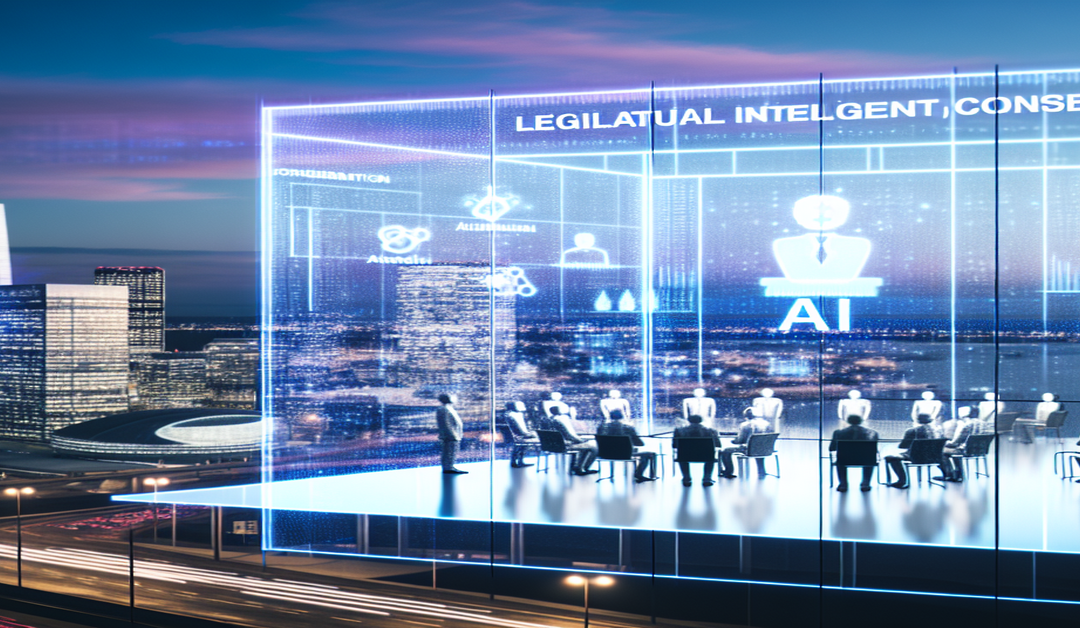Trump Reverses Biden’s AI Executive Order, Signaling Major Policy Shift
In a surprising move, former President Donald Trump has reportedly rescinded an executive order on artificial intelligence (AI) that was issued by his predecessor, President Joe Biden. This reversal marks a significant shift in AI policy under the new administration, sending ripples throughout the tech industry and raising questions about the future direction of AI development in the United States.
Billions in AI Investment Despite Executive Order Reversal
Despite rescinding Biden’s executive order, the Trump administration has announced plans to invest billions of dollars in AI technology. This substantial financial commitment underscores the government’s recognition of AI’s transformative potential and its intent to maintain America’s competitive edge in this rapidly evolving field.
The planned investment is expected to fuel AI research and development across various sectors, from healthcare and transportation to defense and manufacturing. By allocating significant resources to AI initiatives, the administration aims to accelerate innovation, drive economic growth, and solidify the United States’ position as a global leader in AI technology.
Industry Giants and Visionaries Shape the AI Landscape
The reversal of Biden’s executive order has drawn attention from industry leaders and prominent figures in the AI community. **Tech giants like Apple** have a vested interest in the development of AI technologies, as they increasingly integrate AI capabilities into their products and services. The company’s ongoing research in areas such as machine learning, natural language processing, and computer vision positions it to play a significant role in shaping the future of AI.
Moreover, visionary entrepreneurs like **Elon Musk** have been vocal advocates for responsible AI development. Musk’s ventures, including Neuralink and Tesla, heavily rely on AI to drive innovation in fields like brain-computer interfaces and autonomous vehicles. His insights and concerns regarding AI safety and regulation have sparked important conversations within the industry.
Another influential figure in the AI landscape is **Sam Altman**, co-founder of **OpenAI**. OpenAI’s mission to ensure that artificial general intelligence benefits all of humanity aligns with the growing need for responsible AI development. Altman’s perspective on AI governance and his work with OpenAI contribute to the ongoing discourse on AI policy and ethics.
Congress Steps In: Legislation for AI Safety and Regulation
As the executive branch navigates the complexities of AI policy, Congress is also expected to play a crucial role in shaping the legal framework surrounding AI development. Lawmakers recognize the need for comprehensive legislation to address the challenges and risks associated with AI technologies.
Efforts are underway to craft bills that prioritize AI safety, transparency, and accountability. These legislative initiatives aim to establish guidelines for the responsible development and deployment of AI systems, ensuring that they align with societal values and ethical principles.
Safety Advocates Push for Robust Regulations
Amidst the policy shifts and investment plans, safety advocates are raising concerns about the potential risks posed by unchecked AI development. They argue that without robust regulations and oversight, AI technologies could be misused or have unintended consequences that harm individuals and society as a whole.
These advocates emphasize the need for proactive measures to mitigate risks, such as algorithmic bias, data privacy breaches, and the potential for AI systems to perpetuate social inequalities. They call for the establishment of independent oversight bodies, regular audits, and mandatory impact assessments to ensure that AI development proceeds in a responsible and ethical manner.
Navigating the Future of AI
The reversal of Biden’s AI executive order by the Trump administration marks a significant turning point in the trajectory of AI policy in the United States. As the government, industry leaders, and safety advocates navigate this complex landscape, it is crucial to strike a balance between innovation and responsibility.
The billions of dollars in planned investments demonstrate the immense potential of AI to transform industries and drive economic growth. However, this potential must be harnessed in a way that prioritizes the well-being of individuals and society as a whole.
As Congress works to establish a legislative framework for AI development, collaboration between policymakers, industry stakeholders, and safety advocates will be essential. By engaging in open and transparent dialogue, we can ensure that AI technologies are developed and deployed in a manner that upholds our values and benefits humanity.
The future of AI is both exciting and challenging. It is up to us to shape this future by making informed decisions, investing in responsible AI development, and prioritizing the safety and ethical considerations that will guide us forward.
#ArtificialIntelligence #AIPolicy #ResponsibleAI #InnovationAndEthics
-> Original article and inspiration provided by The National News Desk
-> Connect with one of our AI Strategists today at Opahl Technologies

